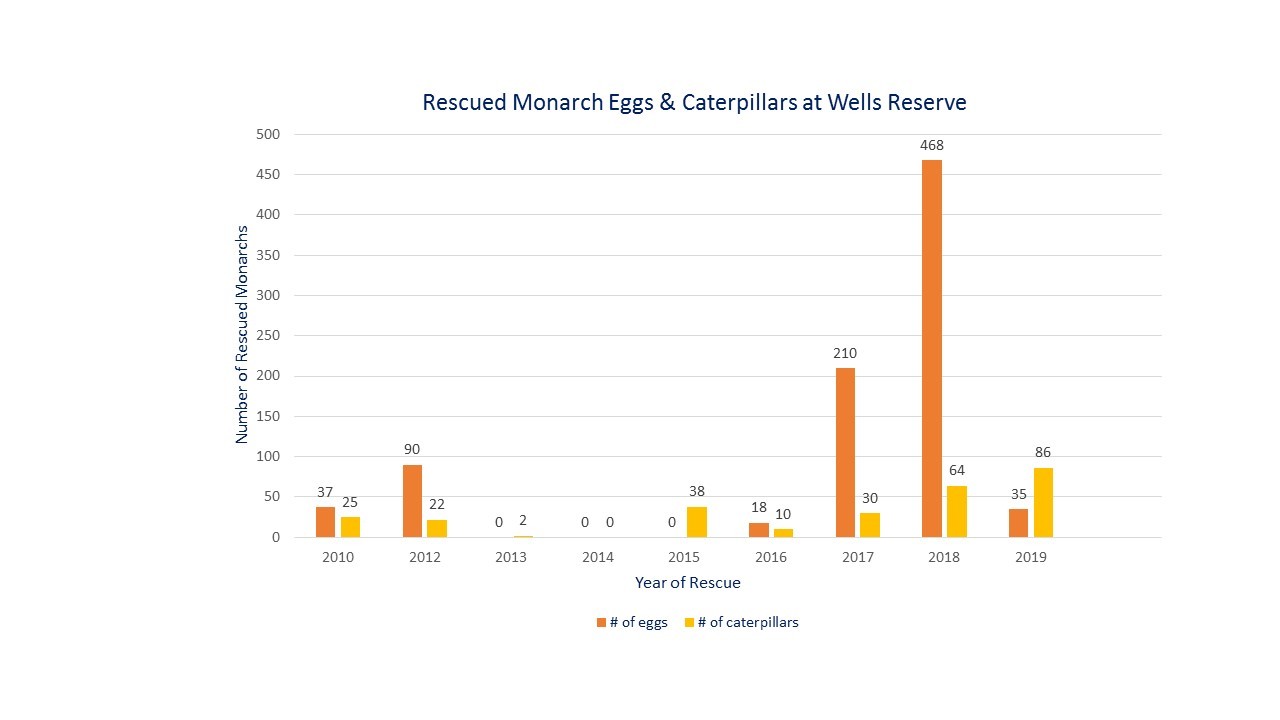The Wrack
The Wrack is the Wells Reserve blog, our collective logbook on the web.
The Wrack is the Wells Reserve blog, our collective logbook on the web.
Yesterday, super dedicated Wells Reserve staff and volunteers embarked on our 9th annual Monarch Rescue. Since 2010, we have gathered in late August to rescue as many monarch butterfly eggs and caterpillars as possible from fields that will soon be mowed. Reserve fields are mowed in alternating years in an effort to maintain this vital habitat, rather than allow it to eventually grow into forest. The mowing also serves to keep invasive plant species in check.
The rescue process involves checking milkweed plants for signs of monarch eggs on the underside of leaves, as well as caterpillars eating the leaves. This year, in the three hours out in the sun-drenched fields sleuthing for signs of monarchs, we found 35 eggs and 86 caterpillars. This is 433 fewer eggs and 22 more caterpillars than last year, though in 2018 we spent roughly twice as long searching over two days instead of one. Still, it seems that the caterpillar numbers are up and the egg numbers are way down. Overall however, monarch populations appear to be doing much better than in the lean years of 2013-2016. We are hopeful!
With the rescue stage of the process complete, the collected caterpillars were then gently coaxed onto milkweed plants in fields not being mowed this year. The rescued eggs will be raised in captivity by Reserve educators to the caterpillar stage, and at that point will be released as well.
Below is a visual representation of the nine years of Monarch Rescue data since 2010. A rescue was not conducted in 2011, but has been done every year since. The decline in the monarch population in 2013-2016, witnessed on an international scale, has been attributed to several possible causes: severe weather, habitat (milkweed) loss, and the use of herbicides.
 A huge and gratitude-filled “thank you” goes out to the staff and volunteers who lent their helping hands to our Monarch Rescue this year! You are all monarch-saving rock stars!
A huge and gratitude-filled “thank you” goes out to the staff and volunteers who lent their helping hands to our Monarch Rescue this year! You are all monarch-saving rock stars!